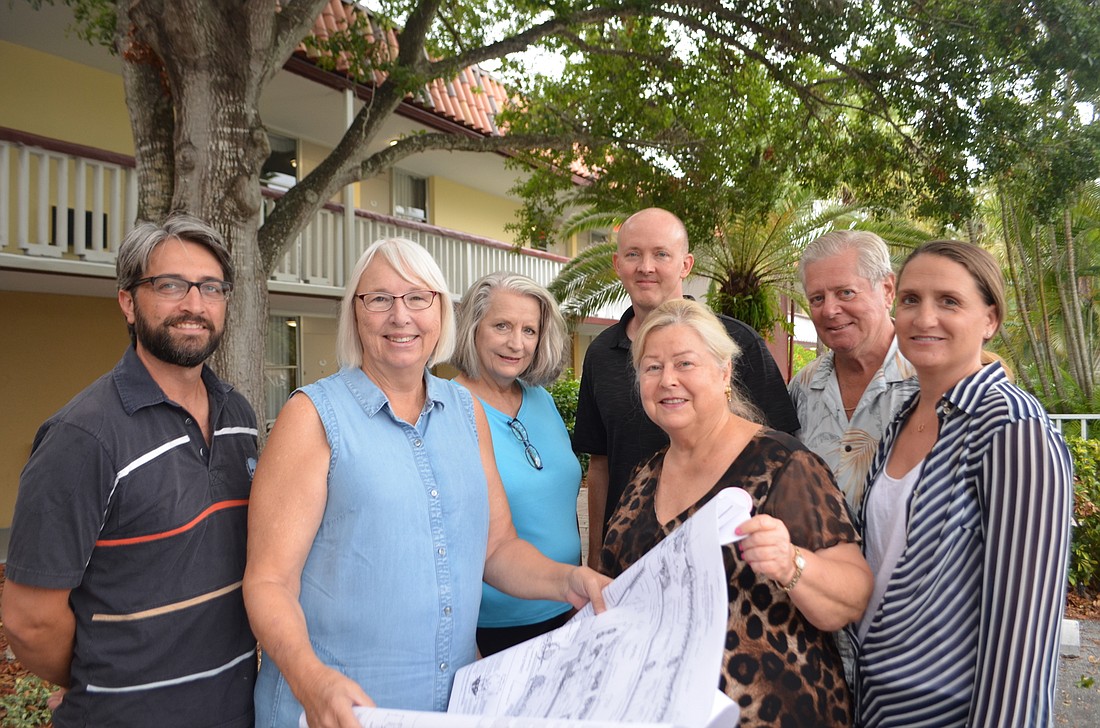- November 30, 2024
-
-
Loading

Loading

When Arlington Park residents grew concerned about a pair of proposed regulatory changes and redevelopment projects on the periphery of their neighborhood last year, they sought a way to take a more active role in guiding the future growth of the area.
After several months of work, neighborhood activists have found their options lacking. As a result, the Arlington Park Neighborhood Association is petitioning city leaders to create a more formal system that allows resident groups to initiate neighborhood-level planning efforts with assistance from city staff.
The Arlington Park Neighborhood Association is also seeking increased opportunity for public input on proposed zoning code changes and development plans. Neighborhood association President Mary Anne Bowie presented the group’s requests to the City Commission at a meeting Monday, hopeful that elevating resident input would help mitigate prolonged disputes over planning and growth in Sarasota.
“We hunger for the city to have more neighborhood planning and more meaningful community input,“ Bowie said.
The City Commission took no action Monday, and officials offered mixed perspectives on the merit of the proposals. Mayor Jen Ahearn-Koch, who placed the item on the agenda, agreed with Bowie that creating alternative avenues for neighborhood input could lead to better outcomes for the city. By working more closely with resident groups on broad planning issues, Ahearn-Koch suggested the city may reduce the number of neighborhood-developer clashes over specific projects.
“It speaks to being ahead of the conflict, trying to minimize the conflict we see,” Ahearn-Koch said.
City Planning Director Steve Cover said officials are happy to work with neighborhood groups on planning initiatives, pointing to the recent adoption of new regulations in the Rosemary District as an example. He said staff had communicated with Arlington Park residents about their planning goals, but issues arose when different factions expressed different wishes.
The Arlington Park Neighborhood Association’s recent focus on planning is related in part to two different development proposals. Plans for the proposed Arlington Commons project include 233 apartments on a 4.67-acre site on Bahia Vista Street near Tuttle Avenue, which would require comprehensive plan and zoning code changes to increase the maximum allowable density. Earlier this year, the city approved zoning changes that would allow for mixed-use development on the Midtown Plaza shopping center property at U.S. 41 and Bahia Vista Street, just west of the neighborhood's boundaries.
Cover said he heard from three different groups in the neighborhood: those who wanted to preserve the single-family neighborhood as-is, those who were interested in affordable housing opportunities, and those who supported changing the zoning to allow duplexes, triplexes, quadplexes and eight-plexes. Rather than devoting staff resources to navigating the differing opinions, Cover encouraged the neighborhood to work through its issues independently.
“The community needs to have a clear vision as to what they want to do before they sit down with us,” Cover said.
Bowie said the neighborhood needed technical help from city officials to navigate complex planning documents. Other city officials, including Commissioner Liz Alpert, suggested city staff could help residents who have identified a perceived issue in their neighborhood but are not certain about the best approach for addressing it.
“They may even come in and say, ‘This is what we want,’ but not understand the ramifications of that,” Alpert said. “I think when we’re looking at this process, we include helping them understand what’s going to really be helpful to their neighborhood.”
City Commissioner Hagen Brody was critical of the idea of being overly deferent to neighborhood associations when it came to planning and zoning decisions. Although he said resident input is important, he discouraged the city from assuming the perspective of voluntary associations were necessarily representative of everyone residing within a neighborhood.
Brody was concerned about giving too much influence to any one stakeholder group, stating the City Commission should make decisions it believes are in the best interest of the entire community.
“A zoning change is a law change,” Brody said. “That’s our responsibility to take on and not basically divest that to staff or [the Coalition of City Neighborhood Associations] or anybody else. We were elected to change the law of the community if we so choose.”
Cover said city staff planned to return to the commission in the future with recommendations based on Monday’s discussion, which could include a formal application for requesting a neighborhood planning initiative. Cover said the city was interested in finding ways to make its public input process more effective, but he was wary of conflating quantity and quality.
“I’m not one to hold more meetings just for the sake of holding more meetings,” Cover said. “I really want them to be productive.”